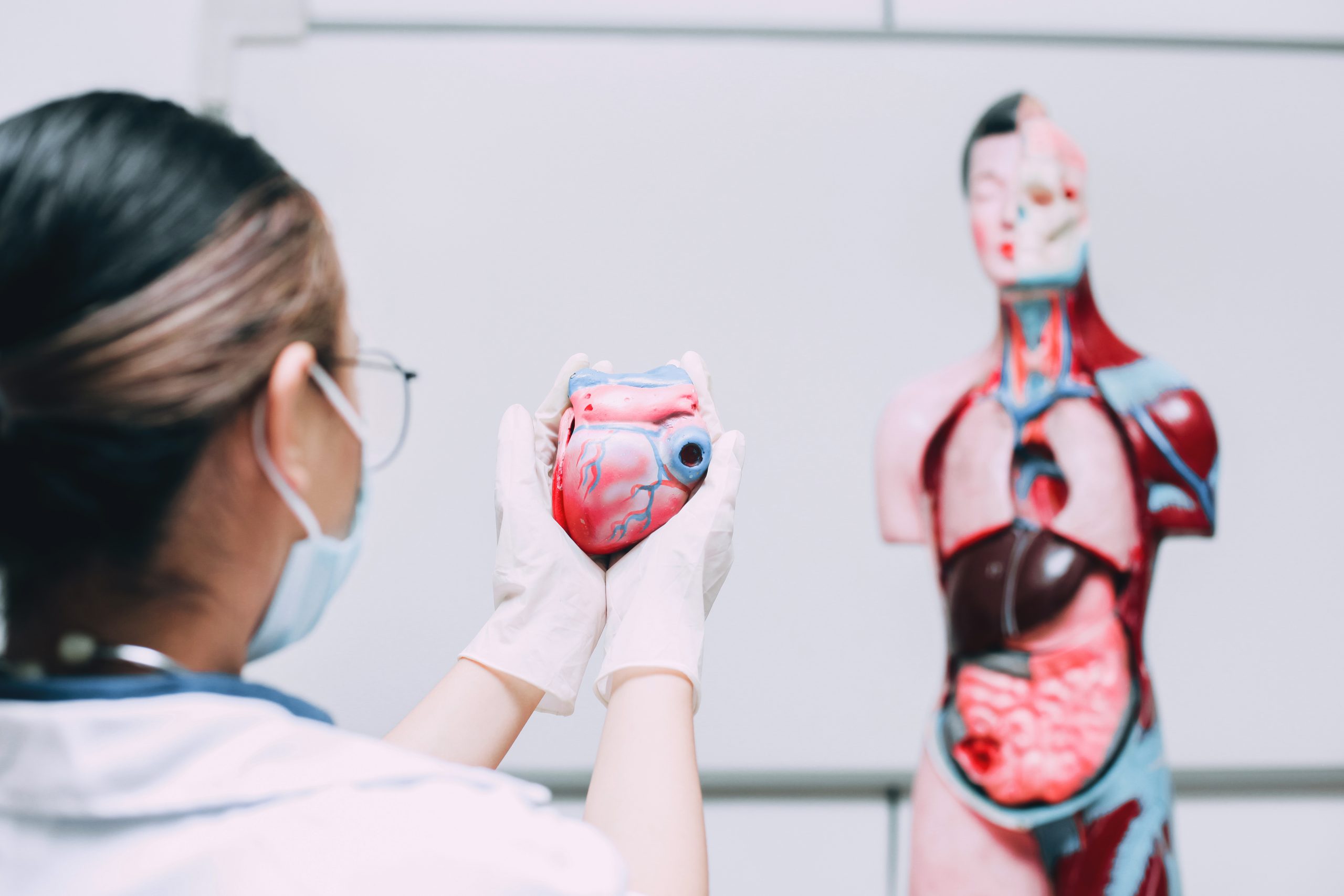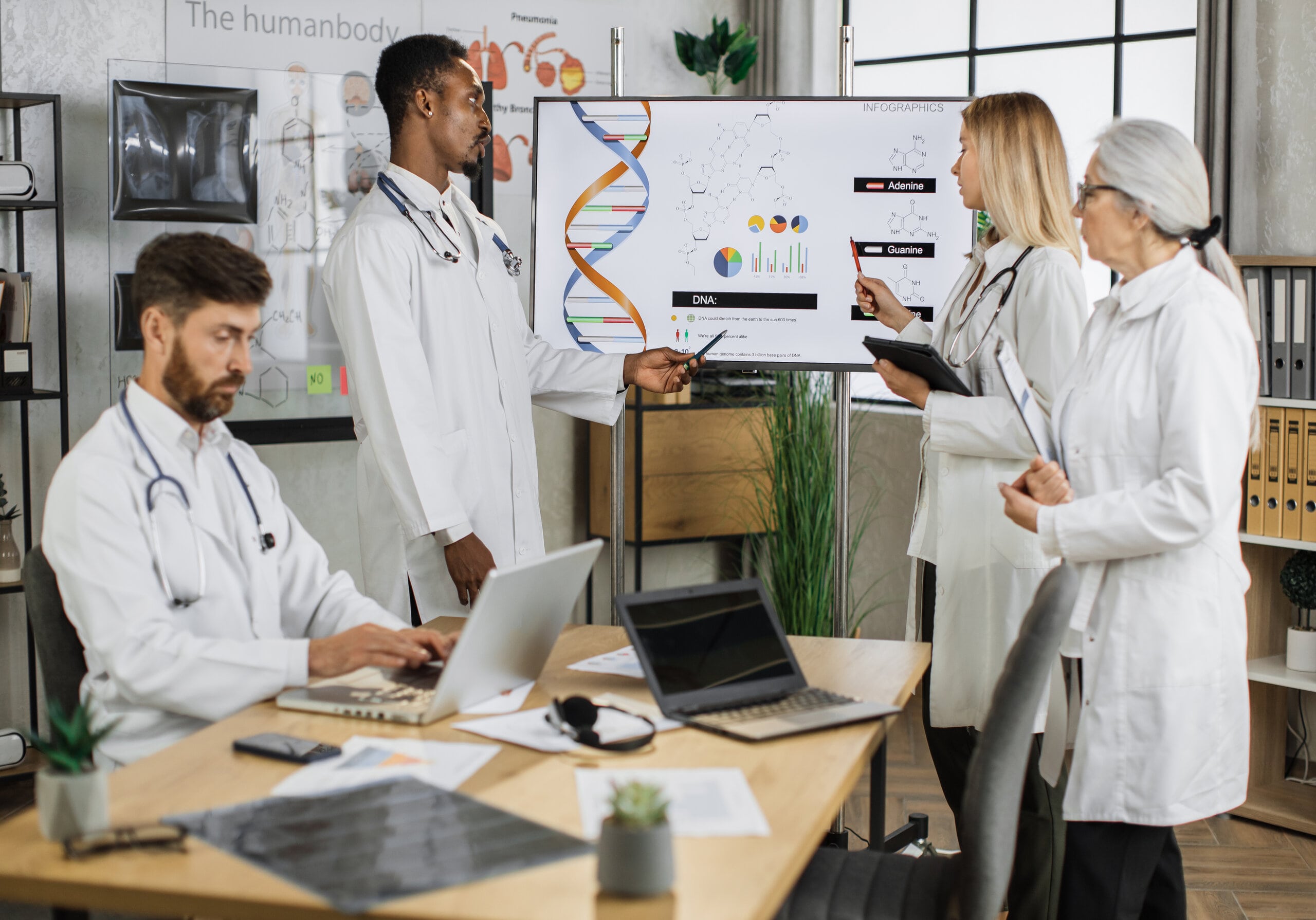Welcome to Open Learning College – Change your career, Increase your salary, and Improve your life.
 Course Overview
Course Overview
Embark on a transformative learning journey with the UK’s most innovative home study provider, offering courses designed to unlock your true potential and facilitate the career change you desire. Access our distance learning courses directly from anywhere, anytime, and acquire industry-recognised Professional Qualifications essential for advancing in your career.
Specifically, explore the flexible and convenient Human Biology (Level 3) course, an ideal way to gain a diploma qualification. Whether you aim for further education, improved job prospects, or expanded knowledge, this comprehensive course allows you to prepare thoroughly for exams or careers through home study. Plus, it’s structured to be accessible and beneficial even if you have no prior knowledge in Human Biology.
The study of life sciences, particularly human biology and organisms, is fundamental to understanding the intricate mechanisms that govern life on Earth. This subject matter serves as a cornerstone in scientific education, offering invaluable insights into the functioning of the human body and its interactions with the environment. At its core, the study of life sciences explores the structure, function, and behavior of living organisms, ranging from microscopic single-celled organisms to complex multicellular beings like humans.
By delving into the intricacies of human biology, students gain a profound understanding of the physiological processes that sustain life. They learn about the organisation of cells into tissues, organs, and organ systems, and how these systems work in harmony to maintain homeostasis. Moreover, the course covers topics such as genetics, reproduction, and inheritance, unravelling the mysteries of heredity and the transmission of traits from one generation to the next.
Furthermore, the study of life sciences extends beyond the confines of the human body to encompass the broader ecosystem in which we exist. Students explore the interrelationships between organisms and their environment, delving into ecological principles and environmental factors that influence life on Earth. They gain insights into concepts such as ecosystems, biodiversity, and ecological sustainability, fostering a holistic understanding of our interconnectedness with the natural world.
Additionally, this subject matter equips students with essential knowledge about human health and disease. They learn about the causes and mechanisms of various illnesses, as well as strategies for prevention, diagnosis, and treatment. Understanding the biological basis of diseases empowers individuals to make informed decisions about their health and well-being, while also laying the groundwork for careers in healthcare, biomedical research, and public health.
In conclusion, the study of life sciences, with a focus on human biology and organisms, offers a wealth of knowledge and opportunities for exploration. By delving into the intricacies of life at both the cellular and organismal levels, students gain a deep appreciation for the wonders of the natural world and the complex processes that sustain life. Moreover, the practical applications of this knowledge extend to various fields, from medicine and healthcare to environmental conservation and biotechnology, making it a highly relevant and rewarding subject matter for students pursuing careers in science and beyond.
 Course Key Topics
Course Key Topics
the Human Biology (Level 3) course is divided into 10 modules.
Module 1: The Chemistry of Life and Cells
The first simple organism that formed on earth was only one-cell big. These cell creatures developed and became complex. The basic structure and function of cells is explored since all the chemical processes essential to life occur here. These cells are the building blocks of, e.g. our organs from skin to the heart to the brain, as well as of biological synthesis for all organisms. In order for our body to function, the transport of materials in and out of cells as well as around e.g. the body is considered. We look at cells in detail and their functions from how they transport, reproduce and join to form more complicated structures. How we studied and used techniques like chromatography to investigate and learn about cellular activities is also covered.
Module 2: Gaseous Exchange, Enzymes and Digestion
This module looks at the structure and function of the digestive system, respiratory system and the role of enzymes in vital processes essential to nutrient extraction and assimilation. Each topic is linked to provide a logical overview of how oxygen is exchanged between the atmosphere and the blood, together with how the biochemical processes are initiated in order to maintain equilibrium within the body tissues, so how oxygen is used to convert glucose to energy, for example. How digestion occurs and all waste is removed in both cellular to larger organisms is discussed as this helps us understand how life on earth has developed from how bacteria and fungi composts garden waste to the breakdown of food in bodies.
Module 3: Genes, Cell Cycles and Genetic Engineering and its Applications
The processes that continually occur within the cells of our body are essential to growth, repair and function. This module examines processes of how cells replicate and reproduce in detail, and presents both description and explanation of the genetic code, DNA – gene expression in humans and how variation and mutation occurs within a species. The module links the biological evidence to techniques and concepts of genetic engineering which is relevant to human existence today, for example in how we produce seeds to grow pest-resistant wheat. In addition there will be discussion about genetic markers for disease screening and the issues surrounding gene therapy. Historic discovery through experiments and development of theories related to each topic is also discussed, e.g. Mendelian genetics.
Module 4: The Mammal, Bacteria and Viruses
In this module we look at the structure and function of the human circulatory system including cardiac cycle and cardiac output. We also examine the composition of blood and the microbiology of viruses and bacteria which are similar in function to the cells within the body; also discussing how these are transported around the body. How oxygen and what else is needed gets to each cell and is able to have all its waste removed is shown. This is a comprehensive module, spanning many body systems but will provide a logical overview of how ‘foreign’ material enters the body and affects wellbeing, e.g. how a coccus bacterium gives a sore throat and how taking medicines or antibiotics can make us better.
Module 5: Biotechnology, Antibiotics, Disease and Diagnosis
As well as causing disease and illness, there are also “good” micro-organisms such as those used in making bread, yoghurt, beer, ethanol, antibiotics or those found in human stomachs. How the best organisms are selected and how they work is discussed, as well as how resistance builds up, e.g. to antibiotics. This module is a logical progression from module 4, and so looks at a variety of diseases (many but not all are caused by Bacteria and Virus e.g. ‘flu, laryngitis, Mumps, HIV) and their diagnosis. It will briefly present a range of symptoms and discuss the possible outcomes of these diseases in relation to each system. The module also looks at the history, production and application of antibiotics, screening processes and disease differentiation.
Module 6: Respiration, Photosynthesis, Stimulus and Response
Respiration and photosynthesis are the two most important processes in Biology; they are the reverse of each other. Metabolism refers to all chemical reactions in the cell, and respiration and photosynthesis are two such examples of light energy being changed into useful energy so we can move, talk etc. We are also able to react to stimuli in the environment. The way we react to stimuli is vital to continued successful existence, and is done by the endocrine and central nervous system. The structure and function of the nervous system, so how humans respond to various stimuli such as pain, danger etc. and how this information is passed around the body is detailed in order to understand how everything in humans is controlled from e.g. sight, breathing, memory, moving away from fire to producing hormones and enzymes.
Module 7: Hormones, Homeostasis, Muscle and Movement
The nervous and endocrine systems complement each other in order to control biological systems. This module will explore the way in which the human body maintains a steady internal environment. Endocrine glands secrete hormones into tissue fluid which directly diffuses into the blood stream, and exocrine glands secrete into cavities e.g. digestive chemicals or to the outside such as sweat glands. Incorporated within this module will be the structure and function of the musculoskeletal system and how this relates to maintaining homeostasis, particularly movement such as walking and the heart pumping blood around the body.
Module 8: Genetics, Variation and Evolution
Evolution and natural selection within any species is dynamic. Continuing from the earlier mention of Gregor Mendel (1822-84), this module examines human evolution, the various theories (e.g. Darwins), and the impact of genetics on diversity, variation and natural selection processes. Sex determination is discussed in some depth and related to different non-genetic influences. In addition, inheritance will be looked at in respect of evolutionary processes, how organisms developed and are classified.
Module 9: Environment
Why do we live where we do, in such diverse environments from Greenland to the desserts in Mali, Africa. The environment is crucial to human survival. In this module we will examine energy and nutrient flows (through various cycles e.g. the carbon and Nitrogen cycles), as well as looking at ecosystems and their role in human endurance. The module will examine farming methods and food production relevant to human nutritional needs and problems. In addition various trophic levels and the role of other animals and plant life in relation to our own existence is discussed. Concepts of human survival, population, competition for survival, and health related to planetary wellbeing and changes will be covered.
Module 10: Life Cycle
Clearly, reproduction sets living and non-living things a part, otherwise robots really could replace humans. In this final module reproduction, growth and development will be looked at in some detail. Exploration of different ages of human beings will include looking at relevant processes such as language acquisition, child development stages and what affects us and happens to us in old age. The marvel of pregnancy and birth will be covered and related to different essentials of life such as healthy diet, digestion, wellbeing and how these things are linked to cognitive and physical development.
(Please click on the curriculum tab above to see a detailed view of each module)
Course Content
Human Biology (Level 3) – FREE Starter Pack
How to…. (a series of explainer videos)
Module 1 – The Chemistry of Life and Cells
Module 2 – Gaseous Exchange, Enzymes and Digestion
Module 3 – Genes, Cell Cycles and Genetic Engineering and its Applications
Module 4 – The Mammal, Bacteria and Viruses
Module 5 – Biotechnology, Antibiotics, Disease and Diagnosis
Module 6 – Respiration, Photosynthesis, Stimulus and Response
Module 7 – Hormones, Homeostasis, Muscle and Movement
Module 8 – Genetics, Variation and Evolution
Module 9 – Environment
Module 10 – Life Cycle
Course Resources
Final Exam
College Announcements
🔍 Embark on an Exciting Journey into Human Biology with £50 OFF the Level 3 Course! 🧬🔬
Ready to explore the fascinating world of human biology? For a limited time, we're delighted to offer you an exclusive discount of £50 off our Human Biology (Level 3) course!
Simply use code BIOLOGY50 at checkout before the month ends!
👣 Why Choose Our Human Biology Course
The Human Biology (Level 3) course, presented by Open Learning College, is your gateway to a comprehensive understanding of the intricate mechanisms that govern life on Earth. With 10 immersive modules, delve deep into topics such as cellular biology, genetics, environmental science, and much more.
💪 What Makes Our Course Shine
Flexibility: Study at your own pace, with 24/7 access to course materials.
Expert Guidance: Benefit from the support of our experienced tutors who are dedicated to your success.
Practical Applications: Gain real-world insights and skills essential for careers in healthcare, biomedical research, and environmental conservation.
Don't miss this opportunity to unlock the secrets of human biology at a discounted rate! Enrol now, use code BIOLOGY50* at checkout, and embark on your journey to mastering the science of life. 🌱🔬
*This discount code cannot be used in conjunction with any other offer.









 Get Social!
Get Social!











David Smith.